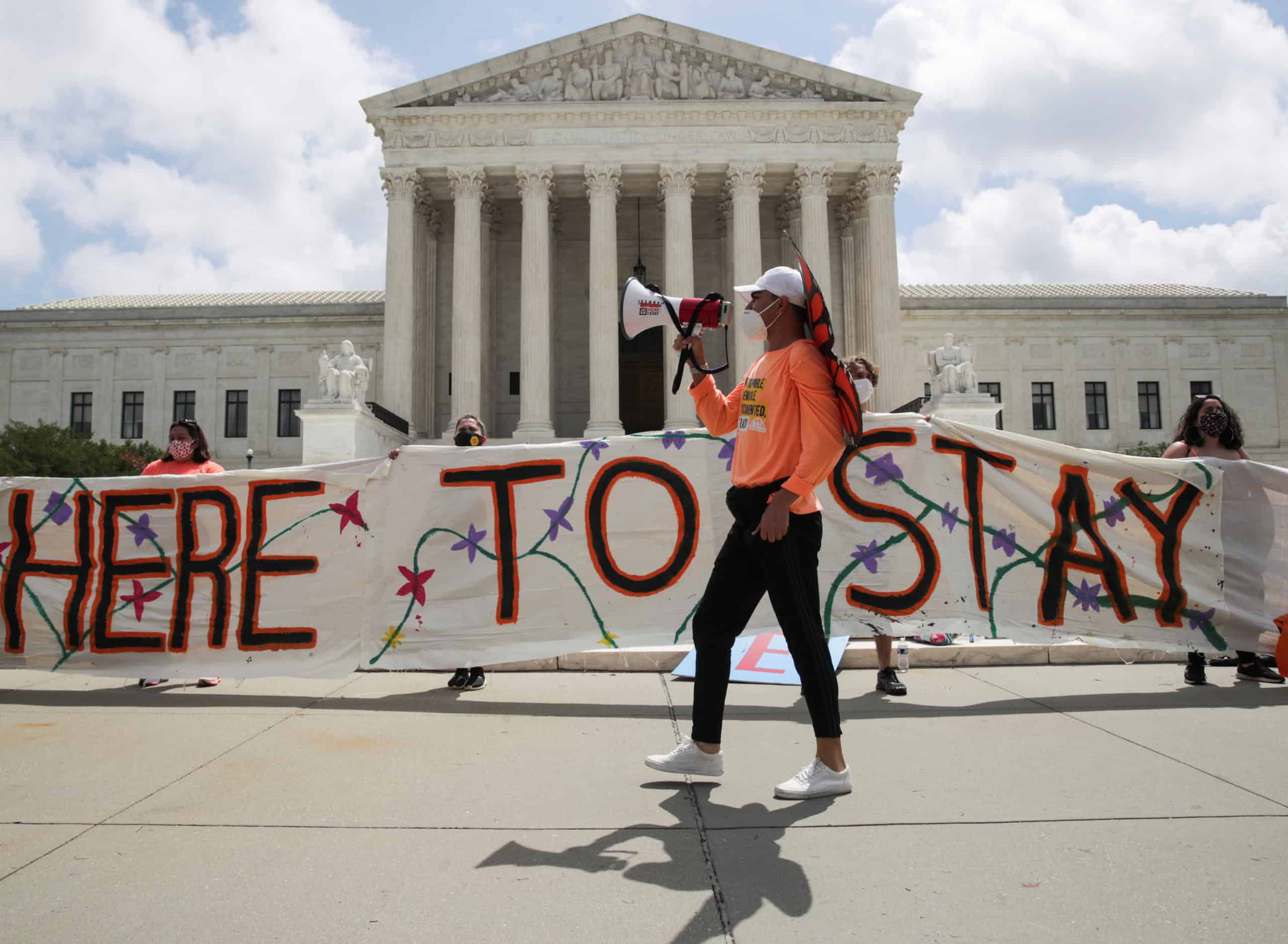Haga clic aquí para español.
Nineteen years is a long time to hold onto the uncertain hope that a dream will come true. Although it has seen many iterations, the Development, Relief, and Education for Alien Minors or DREAM Act first appeared nearly two decades ago in August 2001 as a bipartisan effort to provide a pathway to legal status for those who as minors migrated to the United States without authorization. For the over 700,000 Dreamers, the potential beneficiaries of the DREAM Act, their cause for hope just became more justifiable.
Last Thursday, the U.S. Supreme Court rendered its decision in Department of Homeland Security v. Regents of University of California, declaring the Trump administration’s order to end DACA, a program which has prevented removal of qualifying migrants, “arbitrary and capricious.” While the court’s ruling provides some relief, words like deferred and temporary remain the most apt for describing the suspense in which Dreamers continue to find themselves.
In September 2001, just one month after the initial introduction of the DREAM Act, hopes were dashed. In the name of fighting terrorism, the dream of a secure future for thousands of young migrants suddenly became a nightmare of national security fueled by xenophobia. This bout of anti-immigrant sentiment has haunted our national discourse ever since, and incredibly, nineteen years later, the dream is still deferred but not lost.
Although the DREAM Act has not yet been passed, a less controversial stopgap policy known as Deferred Action for Childhood Arrivals (DACA) was enacted in 2012 by President Obama. DACA allows for the exercise of discretion to withhold legal prosecution of migration violations committed by children who had no choice in their parents’ decision to break the law. However, without authorization from Congress, DACA lacks a pathway to permanent residency. Requiring those eligible to apply every two years to prevent prosecution, it is merely a promise that DACA recipients will not be deported for now.
Life as a DACA Recipient
In the meantime, you, who have constantly wondered which will continue to be deferred, your dream or your deportation, have been my peer, my classmate, my coworker, and my friend. You have grown up alongside me, an American among Americans. Mexico, in fact, is more foreign to you than it is to me because I’ve had the privilege to travel there. For you a trip to see your abuelos for the first time in memory would be a one-way ticket with no way home.
You are a Cub Scout. You pledge allegiance to the flag and promise to do your duty to God and your country. But which country? The United States is the only one you’ve ever known, but they say you belong somewhere else. Your mom took the risk of registering you for DACA trusting that the government would not deport an eight year old if it happened to renege on its promise.
You are ready to go to college now. You’ve worked hard, I mean, real hard to get to this point. You won’t miss muddling through mounds of homework by yourself while Mom was cleaning somebody else’s house. Even if she had been there, she would be the first to admit that a 6th grade Honduran education can’t contend with A.P. English. You got the grades and you earned every one of them, but how can you pay international student tuition? No documents equals no financial aid. By the grace of God, a kind teacher, who has always looked out for you, asks friends to help fund a scholarship. Even so, each day leaves you wondering: Could I lose it all?
You can’t remember a time when you weren’t teaching Sunday school. By the time you were a teenager, you were leading the parish’s faith formation team. You may even have a vocation to the priesthood, but how can you discern when your status is undefined?
You attend one of the most elite universities in the U.S. You never utter a word about your status, but you’re sure they know. It’s clear that Spanish is your first language though it has now become a distant second, a piece of you that faded with the skin you shed to fit in here. Pilsen is far away now, but it will always be home.
You are a loving parent and spouse. You have planted roots and grown up to provide shade for those you love. Like nearly 30,000 other Dreamers, you work in an overwhelmed healthcare system in a time of great urgency. What country would deport a nurse at a time like this?
What Can You Do?
Thwarting the Trump administration’s attempt to end DACA, the court’s 5-4 opinion hinged upon the fact that the administration’s decision was not backed by sound legal justifications. As Chief Justice Roberts made clear, “We address only whether the [Department of Homeland Security] complied with the procedural requirement that it provide a reasoned explanation for its action.”
While the court’s decision certainly gives hope to DACA recipients, it does not eliminate the limbo in which they find themselves. Their residency status is still temporary, they must continue to apply for DACA regularly, and the executive branch could find a legally defensible alternative to end the program. What then is the solution?
In his dissent of the court’s opinion, Justice Clarence Thomas observed, “The court could have made clear that the solution respondents seek must come from the legislative branch.” The U.S. Bishops have called for the passage of the Dream Act of 2019 (S. 874), which the House of Representatives passed last June. Now the Senate has the power to make it a law.
Today we stand in solidarity with DACA recipients. If you were moved at all imagining yourself in the place of someone who had no choice in the matter of coming to this country, you should urge our Senators to pass the Dream Act of 2019. Contact your Senator today!


